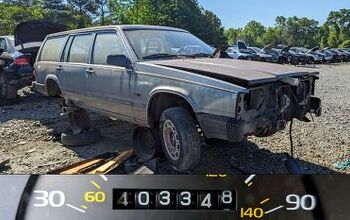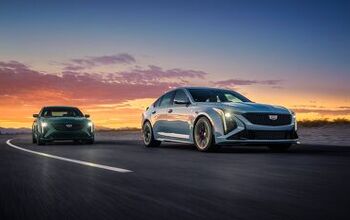Auto Tariffs Off the Table for 180 Days, Trump Claims

U.S. President Donald Trump pushed the threat of tariffs on imported vehicles to the background on Friday, announcing a 180-day pause as the country negotiates trade agreements with Japan and the European Union.
The delay comes a day ahead of a Saturday deadline imposed by the Commerce Department. In February, the department delivered the findings of an investigation on whether auto imports represent a national security threat to the United States. The report, not seen by the public, issued recommendations to the White House.
Trump has long used the threat of import tariffs to bring trading partners to the table, especially the EU. The region fired back with threats of its own. With negotiations underway, Trump is allowed to push back the decision to impose tariffs by six months, though he can still choose to impose them at any time.
The president said Friday that he directed U.S. Trade Representative Robert Lighthizer to secure agreements “to address the threatened impairment” of national security by incoming foreign vehicles.
“United States defense and military superiority depend on the competitiveness of our automobile industry and the research and development that industry generates,” said White House press secretary Sarah Huckabee Sanders in a statement reported by CNBC. “The negotiation process will be led by United States Trade Representative Robert Lighthizer and, if agreements are not reached within 180 days, the President will determine whether and what further action needs to be taken.”
Trump said his aim is to improve the “domestic conditions of competition” by reducing imports. Ideally, he’d love to see every vehicle sold in the U.S. built in the U.S., though that dream scenario isn’t in the cards.
Numerous automakers have come out against the idea of import tariffs, among them General Motors, Toyota, and Volkswagen. Each warns of higher consumer prices if such a move comes to pass.
As the country’s trade focus turns to automobiles, food and clothing companies warn that last week’s raising of tariffs on $200 billion in Chinese goods (from 10 percent to 25 percent) also stands to hit American consumers in the wallet. As reported by Reuters, Del Monte, Walmart, and Macy’s have publicly stated that the tariffs will have an impact on their business, suggesting the added costs could be passed on to consumers.
[Image: BMW]

More by Steph Willems
Latest Car Reviews
Read moreLatest Product Reviews
Read moreRecent Comments
- Jalop1991 There is no inflation. Everything is cheaper than it was 5 years ago. SHRIMP AND GRITS!
- ChristianWimmer Exterior and interior look pretty flawless for such a high mileage car. To me this is an indication that it was well-maintained and driven responsibly. It’s not my cup of tea but it’s bound to find an enthusiastic owner out there.And with ANY car, always budget for maintenance.
- Fred I'm a fan and watch every race. I've missed a few of the live races, but ESPN repeats them during more reasonable hours.
- Mikesixes It has potential benefits, but it has potential risks, too. It has inevitable costs, both in the price of the car and in future maintenance. Cars with ABS and airbags have cost me at least 2000 bucks in repairs, and have never saved me from any accidents. I'd rather these features were optional, and let the insurance companies figure out whether they do any good or not, and adjust their rates accordingly.
- Daniel Bridger Bidenomics working.

































Comments
Join the conversation
Oh look, its the socialist crybabies still whining about our president doing good for the country. Oh these next 6 years will be sweet!
you must not pay much attention to the mid terms, pops. LOL